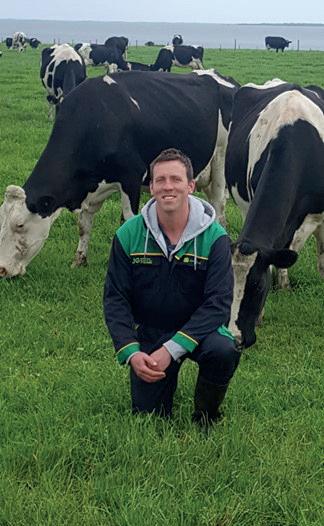
2 minute read
HEIDI HALL: The Power of the Microbiome to produce happy, healthy pigs
THE POWER OF THE MICROBIOME TO PRODUCE HAPPY, HEALTHY PIGS
JOHN OLDACRE FOUNDATION
Advertisement
HEIDI HALL
heidi.hall@anpario.com
Animal health has never been under more scrutiny from consumers, NGO’s and policy makers. The potential impact on human health is under the spotlight and so the swine industry is required to report more details each year on the use of antimicrobials and attain government led targets for year on year reductions.
Throughout my travels I have endeavoured to understand the way in which companies and individuals manage and produce pigs and how health is managed in each of the regions I have travelled. Countries visited were America, Canada, Denmark, Hungary, Portugal and Vienna as well as visits in the UK and information gained from South Korea and China following travels there in November 2018 and Jan 2019. My aims were to understand the factors people believe affect gut health and the links this has with animal performance. Factors would include veterinary interaction, nutrition, genetics, animal husbandry and management on the unit. I wanted to understand the relationships between these cofactors and what people believed where the most important. This provided me with insight into the reasons for key business decisions and where value was attributed on a unit. Gut health is for many an ambiguous term and therefore measuring this is difficult, as is attaching value to good gut health management. However, I firmly believe this is fundamental if we are to produce pigs with a reduced requirement for medication within their lifetime. Feeding for health, increased veterinary interaction, improved management practices all require effort and generally monetary investment. If we are to attain higher health pigs, then we have to be able to recuperate increased value from the sale of the products or reduce costs of production in the near future. There are effective working examples for both models in the global market through either dedicated marketing in country or access to foreign markets. Long term higher health herds also require less intervention which can mean reduced costs of medication and time savings. My report will be disseminated as a shorter accredited report as well as the usual presentation and the work I have done with Aberystwyth University has moulded my outlook on my studies. My report will focus on Nutritional strategies for gut health to reduce antimicrobial use in intensive pig production.
My Nuffield scholarship was kindly sponsored by the John Oldacre Foundation, enabling me to travel and research a project which I am passionate about.

My project has looked to understand how we can manage gut health to reduce our reliance on medication in the swine industry. I feel this topic is paramount to the future of pig farming in the UK and would like to thank the charity for affording me the privilege to dedicate my Nuffield scholarship to this cause. Heidi Hall- Nuffield Scholar 2019






